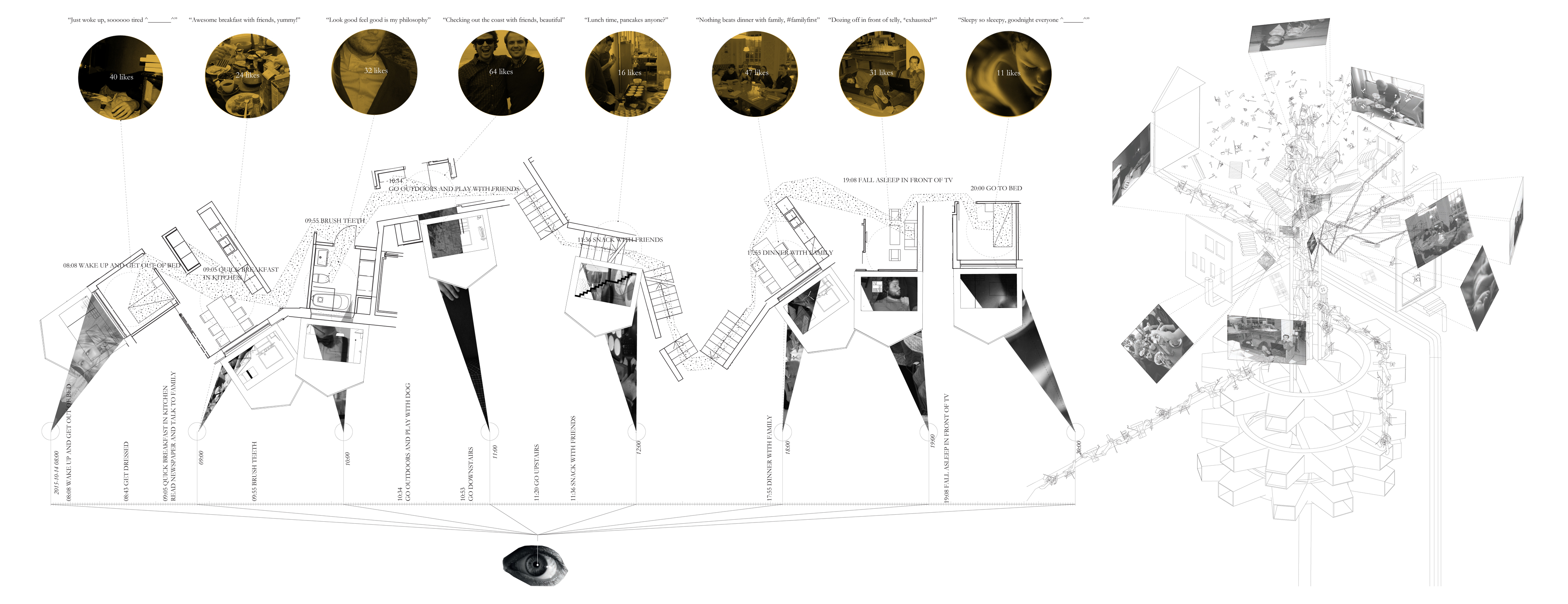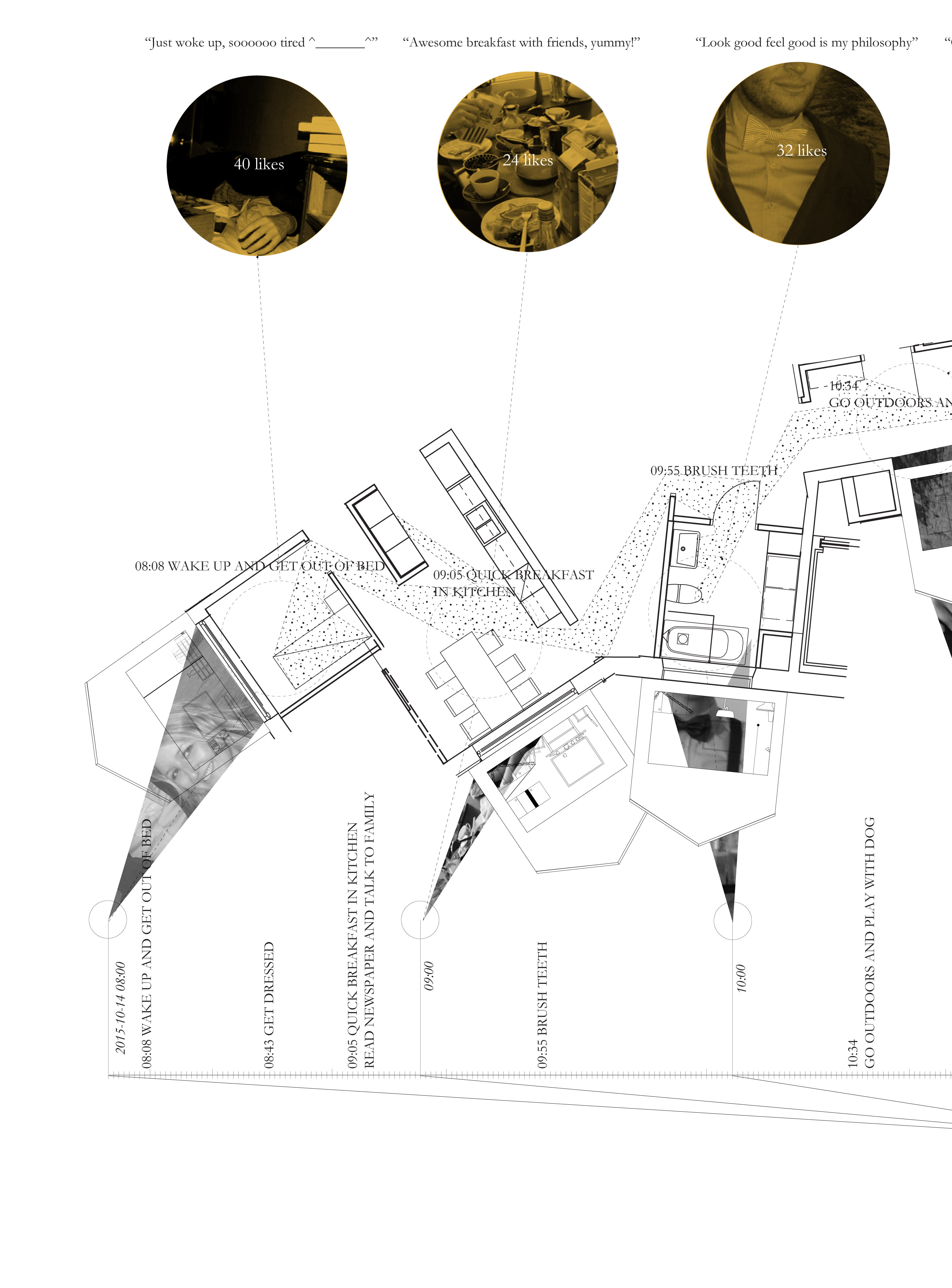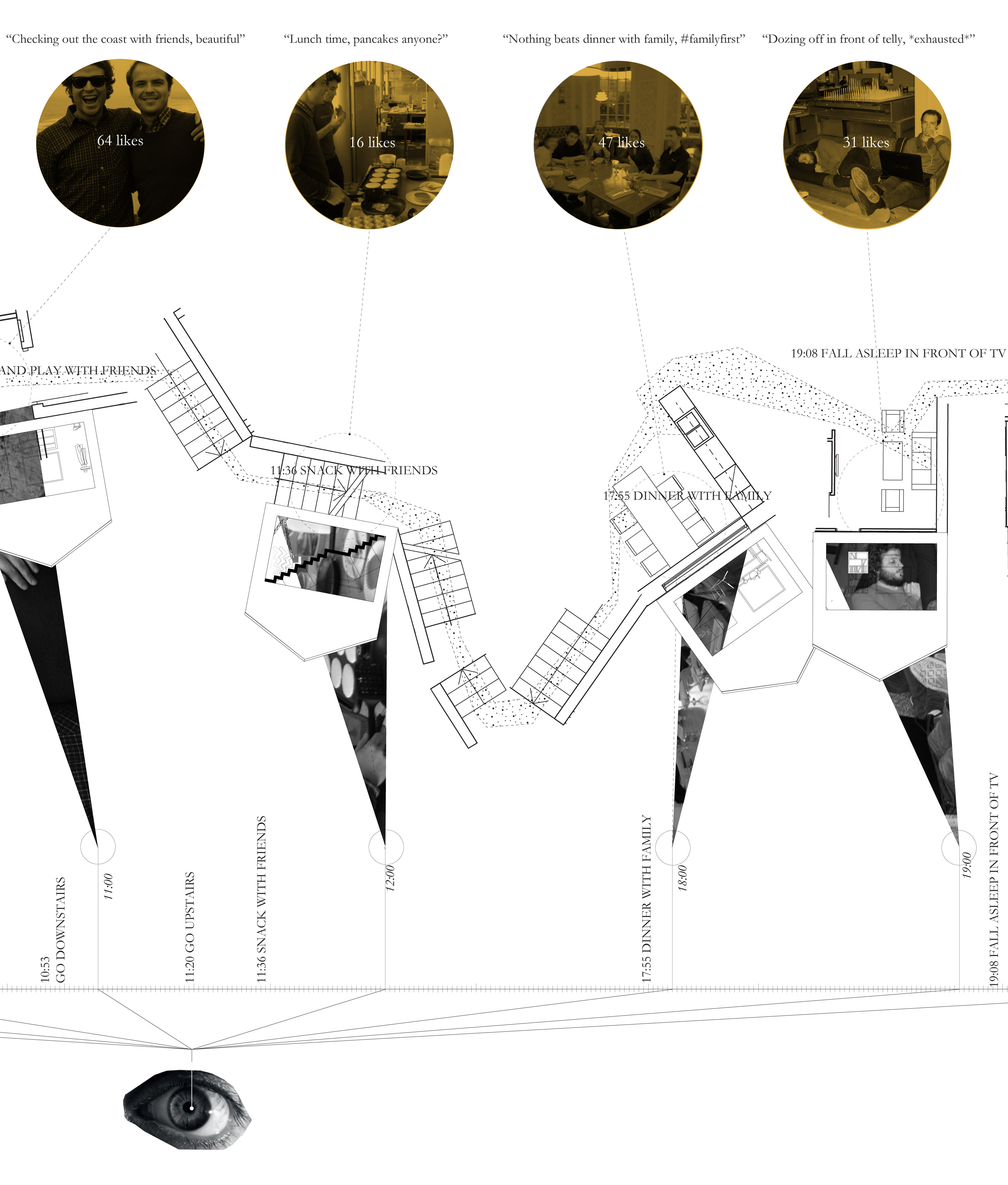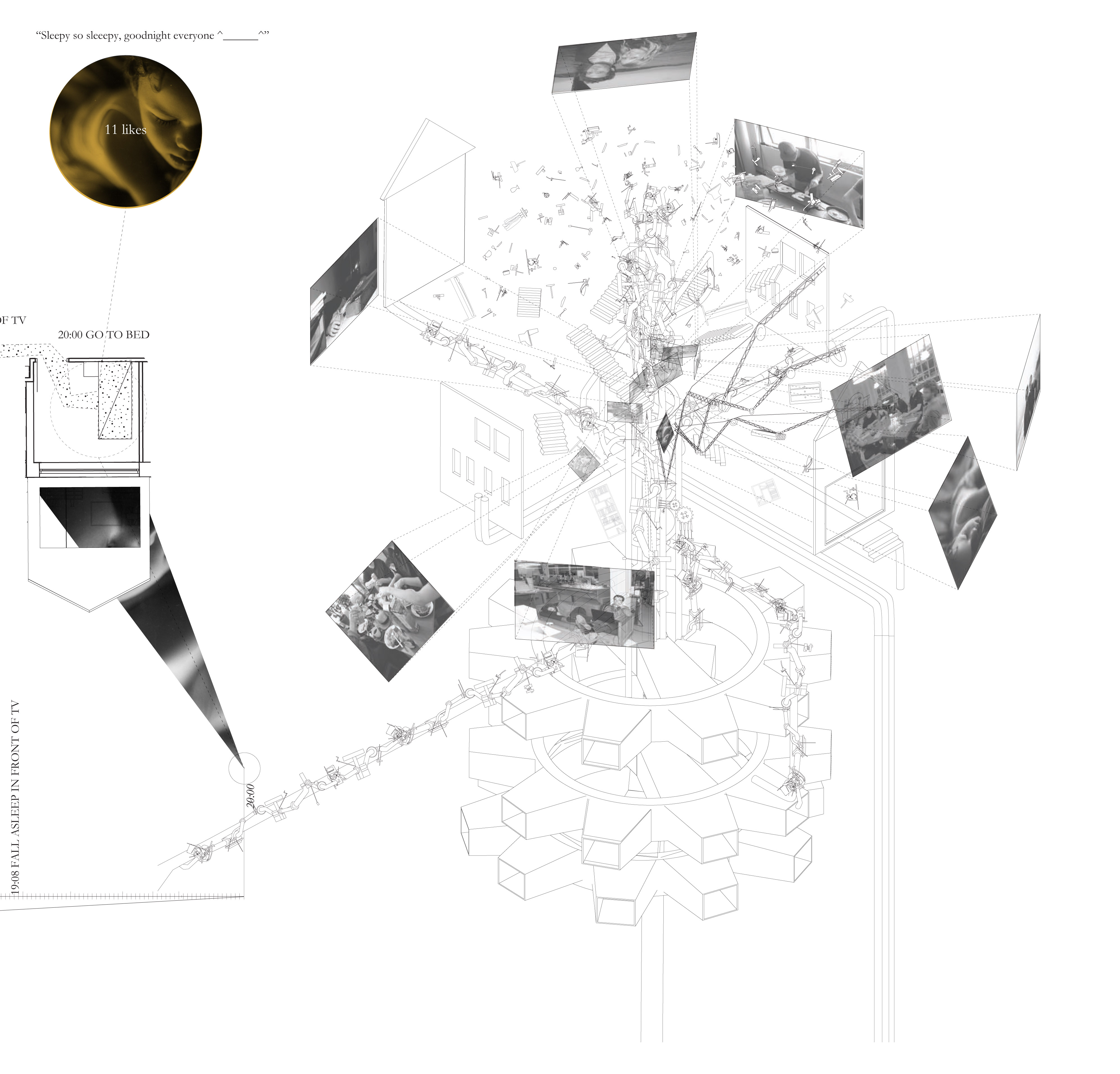Published in Soiled #4 Windowscraper (Chicago, 2013)
In collaboration with Henry Stephens.




Privacy no longer exists in the traditional sense. It is no longer possible for one to engage with society and maintain a private sphere simultaneously. We exist not in physical space, but in the liminal space between relentless waves of twitter posts, facebook updates and faux- ltered instagram snaps – our lives collectively laid out as a singular highlight reel depicting endless excess, excitement and stimulation. When our identities become more based on a virtual presence and less on being seen in the physical world, the former objects and spaces used as identity and status markers lose their meaning as real objects. We fi lter candle light on our instagram, without necessarily burning a candle. We frame a speci c corner of our living room with our camera - posting a photograph of a well-lit, beautiful space, when the rest of the room is a mess or just empty. We post images of creme brulee on our trip to Paris last summer, not the cheap block of cheese bought from a budget suburban grocery store.
One could argue that this constant framing of life turns the entire existence into a staged act, where our physical surroundings are reduced to scenography - a series of images generating simulacra. In a sense this reality is no longer real, but a kind of hyperreality, a Disneyland of everyday life where the reference is more important than the actual experience. To speak with French philosopher Jean Baudrillard, it is as if the hyper-reality needs the “old imaginary like a sympathetic nervous system made up of childhood signals and faked phantasms” (Baudrillard, 13). A critique like Baudrillard’s inevitably also asks for loopholes and ways to a more real reality, an almost utopian negation of the simulacra in order to revive true desires and energies. We are not interested in this, but rather the consequences and possibilities with the given order of simulacra, and what part architecture plays in this process.
Another suitable metaphor for the situation might be found in Jorge Louis Borges’ short story “On Exactitude in Science” (Borges, 325), where the imperial cartographers draw a map with scale and resolution so great that it eventually covers the entire terrain. Th e map is larger than life. In a similar way our internet-identities are already far greater than our physical selves. Th e reduction of the entire physical world to the abbreviation “IRL” (In Real Life) is a display of how the priorities between the di fferent worlds have changed dramatically the last decade. The life in the physical world is no longer necessarily more “real” or true than the digital universe. Architecture has been slow to respond to this shift in social dynamics. Th erefore, we propose the Stage House as a model for re-institutionalising privacy within the context of a typical domestic home.